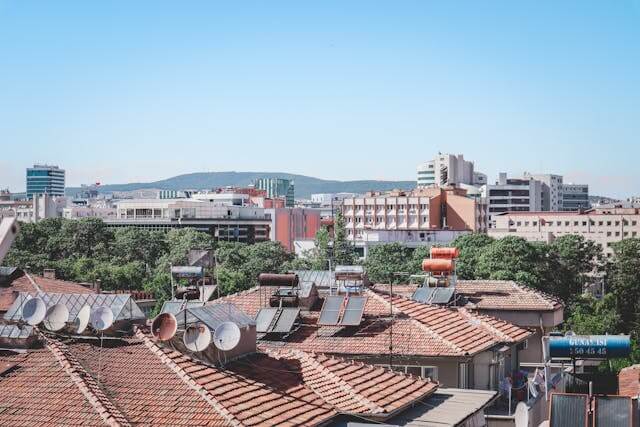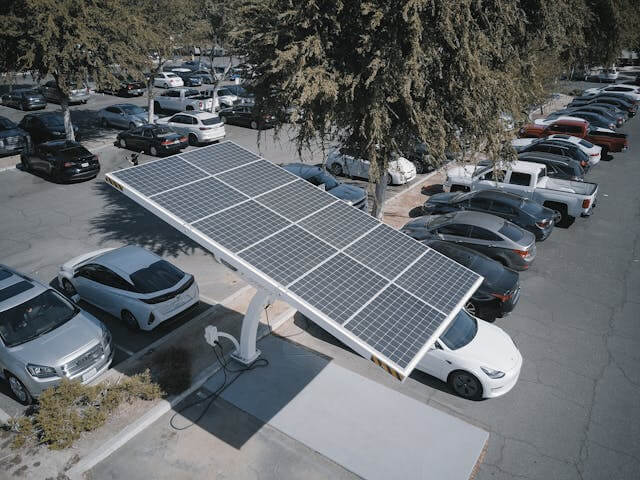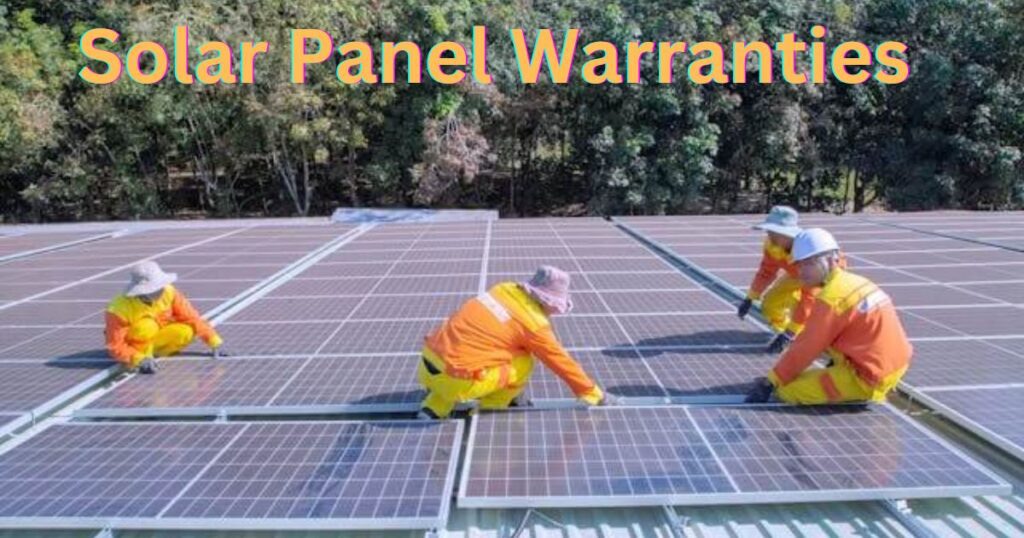Last updated on March 6th, 2025 at 04:13 am
- Solar panel warranties typically include product warranties, covering defects in materials and workmanship, and performance warranties, guaranteeing power output over time.
- Key components of solar panel warranties include coverage period, degradation rate, exclusions, and transferability, all of which vary among manufacturers.
- Proper installation, regular maintenance, and adherence to warranty terms are crucial to keep solar panel warranties valid and ensure optimal performance.
- Common misconceptions about solar panel warranties include believing that all warranties are the same or that claims are straightforward, highlighting the importance of understanding the fine print.
- By carefully reviewing and comparing solar panel warranties, consumers can make informed decisions and protect their investment in renewable energy for the long term.
What is a solar panel warranty?
A solar panel warranty is a contractual agreement provided by the manufacturer or installer of solar panels, outlining the terms and conditions under which the panels are guaranteed to perform.
It typically includes assurances regarding the quality, durability, and performance of the solar panels over a specified period, offering protection against defects, malfunctions, or underperformance.

Importance of solar panel warranties
The importance of solar panel warranties cannot be overlooked, as they play a crucial role in ensuring the reliability, performance, and longevity of solar energy systems. Here are several key reasons why solar panel warranties are of utmost importance:
Financial Protection
Solar panel warranties provide financial protection against potential defects, malfunctions, or premature failures of the panels. Without warranty coverage, customers could be left with significant repair or replacement costs, impacting their overall investment in solar energy.
Assurance of Performance
Warranties offer assurance that the solar panels will perform as expected over the specified warranty period. This includes maintaining a certain level of power output and efficiency, ensuring that customers receive the anticipated benefits of their solar energy systems.
Peace of Mind
Knowing that their investment is backed by a warranty gives homeowners and businesses peace of mind. They can rest assured that in the event of any issues with the panels, the manufacturer or installer will address them promptly and efficiently, minimizing disruptions and inconvenience.
Maximized Return on Investment (ROI)
Solar panel warranties play a crucial role in maximizing the return on investment (ROI) for solar energy systems. By safeguarding the performance and longevity of the panels, warranties help ensure that customers can fully realize the financial benefits of generating their own clean energy.
Quality Assurance
A robust warranty reflects the confidence of the manufacturer or installer in the quality and reliability of their products. It serves as a testament to the craftsmanship and engineering standards upheld during the production of the solar panels, instilling trust in the brand and product.
Consumer Confidence
Warranties enhance consumer confidence in the solar industry by offering assurances of reliability and accountability. Customers are more likely to invest in solar energy systems when they have the security of warranty coverage, driving growth and adoption of renewable energy solutions.
Key components of solar panel warranties
Coverage Period
-
- The coverage period of a solar panel warranty refers to the length of time during which the warranty is valid. It typically ranges from 10 to 25 years, with longer coverage periods providing greater peace of mind for customers.
-
- A longer coverage period means that the manufacturer or installer is confident in the durability and performance of the panels over an extended period. It also indicates their commitment to standing behind their product.
-
- Customers should carefully review the coverage period and consider their long-term energy needs and investment goals when selecting solar panels.
Degradation Rate
-
-
- The degradation rate, also known as the degradation warranty or performance guarantee, specifies the rate at which the solar panels are expected to degrade over time. It represents the gradual decline in power output or efficiency of the panels due to factors such as exposure to sunlight, weather conditions, and aging.
-
- Common degradation rates range from 0.5% to 0.8% per year, indicating the expected decrease in power output annually. For example, a solar panel with a degradation rate of 0.5% per year would maintain 90% of its original output after 20 years.
-
- The degradation rate is an essential consideration for customers as it provides assurance of the panels’ long-term performance and helps estimate their energy production over time.
-
Exclusions and Limitations
-
-
-
- Solar panel warranties often include exclusions and limitations that specify what is not covered under the warranty. These may include damage caused by acts of nature, improper installation, unauthorized modifications, normal wear and tear, negligence, or commercial use.
-
- It’s crucial for customers to review the exclusions and limitations carefully to understand the circumstances under which warranty coverage may be voided. Taking preventive measures, such as proper installation and maintenance, can help avoid warranty issues.
-
-
Transferability
-
-
-
-
- Transferability refers to whether the warranty can be transferred to subsequent owners if the property is sold. A transferable warranty can enhance the resale value of the property by providing added assurance to potential buyers.
-
- Not all solar panel warranties are transferable, so customers should check the warranty terms to determine if this feature is included. Transferable warranties offer flexibility and peace of mind for both current and future owners of the property.
-
-
-

Different types of solar panel warranties
Product Warranty
A product warranty, also known as a materials or workmanship warranty, covers defects in the manufacturing process or materials used in the construction of the solar panels. It typically guarantees that the panels will be free from defects for a specified period, which can range from 10 to 25 years, depending on the manufacturer.
Product warranties ensure that the solar panels will operate as intended during the coverage period and provide protection against premature failures or malfunctions. If a defect arises within the warranty period, the manufacturer or installer will repair or replace the affected panels at no additional cost to the customer.
Product warranties may vary in terms of coverage and exclusions, so it’s important for customers to carefully review the warranty terms before making a purchase. Common exclusions may include damage caused by improper installation, natural disasters, or unauthorized modifications to the panels.
Performance Warranty
A performance warranty guarantees that the solar panels will maintain a certain level of power output or efficiency over time. Unlike product warranties, which focus on defects in materials or workmanship, performance warranties specifically address the performance of the panels in generating electricity.
Performance warranties typically specify the degradation rate of the solar panels, which is the rate at which their power output declines over time due to factors such as exposure to sunlight, weather conditions, and aging. The degradation rate is often expressed as a percentage per year, with lower degradation rates indicating better long-term performance.
Performance warranties typically have longer terms than product warranties and may extend for 25 years or more. They ensure that the solar panels will continue to produce electricity at a specified level, such as 80% or 90% of their rated output, throughout the warranty period.
If the solar panels fail to meet the performance guarantee specified in the warranty, the manufacturer or installer is responsible for addressing the issue, which may involve repairing or replacing the panels to restore their performance to the guaranteed level.
Installation Warranty
An installation warranty covers the workmanship and installation of the solar panels by the installer or contractor. It ensures that the panels are installed correctly and in accordance with industry standards and regulations.
Installation warranties typically range from one to ten years, depending on the installer and the terms of the warranty agreement. During this period, the installer is responsible for rectifying any issues or deficiencies related to the installation process at no additional cost to the customer.
Common issues covered by installation warranties include faulty wiring, improper mounting, leaks in the roof penetrations, and inadequate sealing around the panels. If any of these issues arise within the warranty period, the installer will repair or replace the affected components to ensure the proper functioning and safety of the solar energy system.
Installation warranties provide customers with peace of mind, knowing that their solar panels have been installed correctly and will perform optimally for years to come. They also demonstrate the confidence of the installer in their workmanship and commitment to customer satisfaction.
What to look for in a solar panel warranty
When evaluating solar panel warranties, there are several key factors to consider to ensure you’re getting comprehensive coverage and protection for your investment:
Coverage Period: Look for warranties with longer coverage periods, ideally spanning 25 years or more. Longer warranties provide greater assurance of the panels’ longevity and performance over time.
Product Warranty Terms: Review the terms of the product warranty, including what is covered and for how long. Ensure that it covers defects in materials and workmanship and includes provisions for repairing or replacing faulty panels.
Performance Guarantee: Check the performance warranty for guaranteed power output levels over time. Look for warranties with lower degradation rates, indicating that the panels will maintain their efficiency for longer periods.
Transferability: Determine whether the warranty is transferable to subsequent owners if you sell your property. Transferable warranties can enhance the resale value of your home by providing added assurance to potential buyers.
Exclusions and Limitations: Pay attention to any exclusions or limitations outlined in the warranty, such as coverage for specific types of damage or conditions. Ensure that the warranty provides adequate coverage for common issues that may arise.
Manufacturer Reputation: Research the reputation and track record of the solar panel manufacturer and installer. Choose reputable companies with a history of standing behind their products and honoring warranty claims.
Customer Support: Evaluate the manufacturer’s customer support services, including how responsive they are to warranty claims and inquiries. Prompt and reliable customer support can make the warranty process smoother and more efficient.
Industry Certifications: Look for solar panels that are certified by reputable industry organizations, such as the International Electrotechnical Commission (IEC) or Underwriters Laboratories (UL). Certification ensures that the panels meet strict quality and performance standards.
Warranty Documentation: Review the warranty documentation carefully to understand the terms, conditions, and procedures for making claims. Keep a copy of the warranty documentation in a safe place for future reference.
Comparison Shopping: Compare warranties from multiple manufacturers and installers to find the best combination of coverage, terms, and price. Don’t solely focus on cost; prioritize the overall value and reliability of the warranty.

